30 Oct 2014
Tips For Dating A Recovering Addict
Dating can be tough. You meet all kinds of people in bars and clubs and maybe you meet some real strange characters in online dating as well. What happens when you meet a recovering addict? Is that a deal breaker or should you consider getting to know him better? The choice is a personal one, but before you dive head first into a relationship with a recovering addict you should be ready for what lies ahead. It could be the real deal, or it could end up being a nightmare relationship.
Realization With And Support For Your Recovering Partner
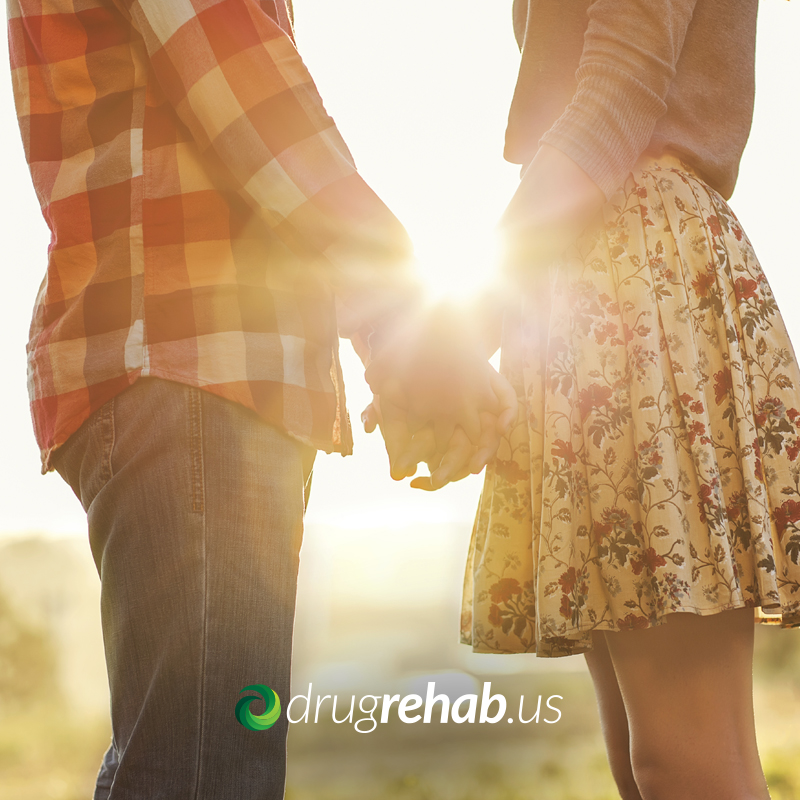 The first thing you should know about dating an addict is that he is, in fact, an addict. Addiction is a lifelong disease and even if he has been sober for years, a relapse is always possible. Also know that love does not conquer all, especially real world problems like addiction.
The first thing you should know about dating an addict is that he is, in fact, an addict. Addiction is a lifelong disease and even if he has been sober for years, a relapse is always possible. Also know that love does not conquer all, especially real world problems like addiction.
Your recovering addict partner will need your support, and as much as you love him, he will try your patience at times. Sometimes love is not enough to make a relationship work in the face of real problems. If you understand these realities and accept them, you may be ready to start dating a recovering addict.
Tips For Dating An Addict In Recovery
Here are some important tips to keep in mind as you take this journey:
- Look for honesty – The fact that someone has struggled with addiction need not be a red flag or a relationship ender. What is important is his honesty and openness. If he has been up front with you about his past struggles it shows that he has largely overcome them and is not ashamed. He has done good work and is willing to share that with you. This is a good sign.
- Be open – You also need to be open about his past. Talk about how it makes you feel and what your concerns are. He should be willing to discuss it with you and can likely allay some of your fears. Starting out on your relationship with solid, open communication will help you have a stronger partnership when times get rocky.
- Find the limits – Some recovering addicts cannot be around drugs or alcohol at all. Make sure you know whether you need to refrain from drinking in front of him and be prepared to make those accommodations if necessary.
- Learn the signs of substance abuse – Relapse is always possible, no matter how put together he seems now. Make sure you know the signs of a slip up so that you can be prepared if he relapses and starts using again. It may be obvious, but he may also be subtle about it. Try not to be over-vigilant, but do be aware of changes and what they might mean.
- Volunteer for therapy – If your partner is still attending therapy sessions or occasional counseling, be ready to join in. Offer to go along if he needs or wants you to. It may be a personal experience for him, but he might also want you to be involved. Be open to the experience.
- Take care of yourself – There will be times when dating a recovering addict is stressful for you. Being caring is important, but don’t forget to take care of yourself. Take time off to be alone and to do things that keep you happy and sane whenever you need it.
Make Sure He Meets Your Needs Too And Understand The Challenges
Dating a recovering addict is not impossible, but it may represent an additional relationship challenge. The important thing is that you find someone who meets your needs. If that person happens to be an addict in recovery, understand the unique challenges and be ready to meet them.
Learn More About Addicts And Their Excuses
23 Oct 2014
When To Cut An Addict Out Of Your Life
Knowing when to walk away from an addict in your life is difficult, but there is an appropriate time to say enough is enough. The exact timing depends on you and the addict in your life. It is a personal choice to let go of this friendship or to cut this family member out and this is one decision that only you can make.
When you have exhausted your ability to help your loved one and he still won’t make any changes or even admit to having a problem, it’s time to at least consider walking away. You can’t make anyone change. Only he can make that ultimate choice.
Reasons To Cut Addict Out Of Your Life
As you contemplate your next move, here are some important reasons to cut an addict out of your life:
- You have devoted a huge amount of time and energy trying to help your loved one, to no avail. – You’ve learned about addiction to try
 to understand what your loved one is going through. You staged an intervention and brought in a number of friends and family members to try to reach him. You spent countless hours trying to convince your friend that he has a problem and needs help. You set limits and boundaries and he continues to cross them. When your efforts are monumental and met with nothing but resistance, it may be time to move on.
to understand what your loved one is going through. You staged an intervention and brought in a number of friends and family members to try to reach him. You spent countless hours trying to convince your friend that he has a problem and needs help. You set limits and boundaries and he continues to cross them. When your efforts are monumental and met with nothing but resistance, it may be time to move on.
- Your friend has taken advantage of your charity. – It’s important for addicts to have friends and family members to support them, but when the addict still refuses to change and starts to take advantage, you have a problem on your hands. Not only is your loved one hurting you, but you have also become an enabler. Maybe he is taking your financial support, which you thought was helping him keep his apartment, and is spending it on drugs. Maybe he has stolen from you. Decide how much of this you can take and then change your locks and cut him off.
- Your loved one has become violent or frightens you. – The moment you feel your safety has been threatened, either by your loved one or his friends or acquaintances, tell him it’s over for now. Your safety should never be compromised by someone you love, no matter the situation. Take a zero-tolerance stance when it comes to violence or threats.
- Your health—emotional, physical or mental—is suffering. – Loving someone who is addicted can take a huge toll on your health. If your loved one’s situation is causing you increased levels of stress, to the point that it is causing physical symptoms, sleep loss, or other major issues, you have to consider making a change for your own well-being. You can’t help someone when you aren’t well yourself. Take time off to get better and then consider trying to help again.
Make The Decision But Offer Support If Your Loved One Gets Addiction Treatment Help
Cutting someone out of your life is a tough choice to make, but is sometimes inevitable. It’s important to try to help those you love, but you have to set limits and you have to consider yourself and your own well-being. Also know that this doesn’t have to be permanent. Tell your loved one that you are saying goodbye for now, but that if he can get his act together you will be back to fully support him in his sobriety. This should be a decision you make for yourself, but it may also turn out to be the motivation he ultimately needs to make that change.
Learn More About The Intervention Process And Steps
22 Oct 2014
Alcoholics And Their Excuses
Alcoholism is a disease. It is chronic and it requires lifelong treatment to stay sober. While going through rehab and staying sober are challenging, the first and biggest step for an alcoholic is to get past the excuses and admit to having a problem with drinking.
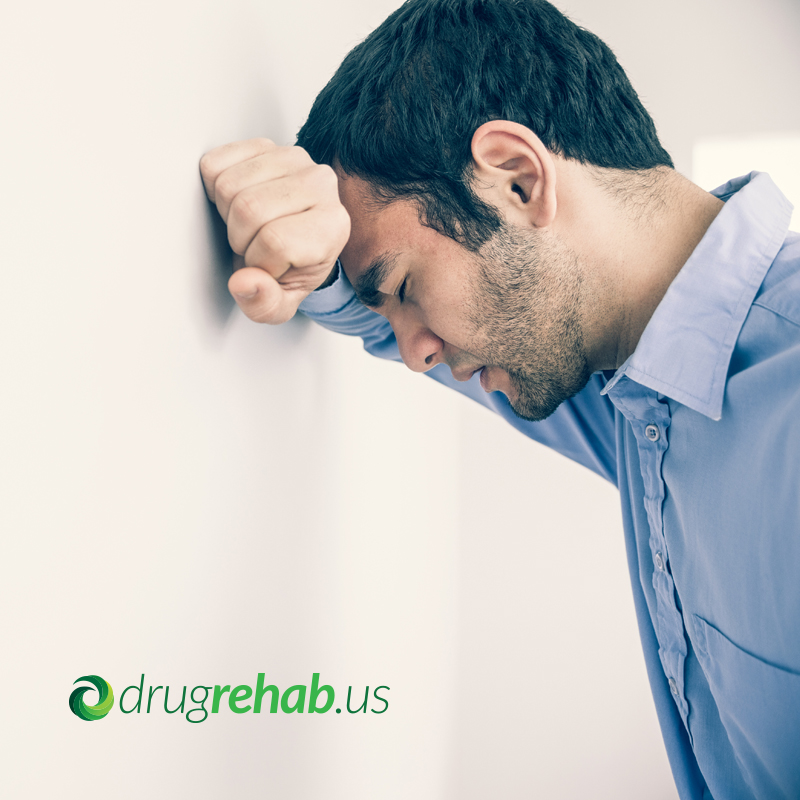 Heavy drinkers deny having a problem for a variety of reasons. They fear what happens in detox. They worry about what people will say. Most of all they fear what life will be like sober.
Heavy drinkers deny having a problem for a variety of reasons. They fear what happens in detox. They worry about what people will say. Most of all they fear what life will be like sober.
In spite of the fears, it is important for alcoholics to get help. The consequences of not doing so may be serious.
Pregnant alcoholics risk fetal alcohol syndrome. All alcoholics face health consequences like liver or heart disease. Accidents are common among alcoholics. They also must face the possibility of losing relationships.
Excuses Of An Alcoholic
If you have a loved one who drinks too much, confront him or her. Be prepared to hear this list of excuses alcoholics give to explain drinking:
- I need to drink to feel comfortable in social situations – Many people face social anxiety. It is a real disorder, in fact. It is not uncommon to self-medicate with drugs or alcohol, but it is not a good excuse. Self-medicating is dangerous. Therapy can help anyone overcome social anxiety.
- I’m only hurting myself – Addicts are great at claiming that their habit is their own business. Remind your loved one that drinking affects everyone else too. When drinking makes the alcoholic remote, angry or temperamental, everyone suffers. When drinking costs the family money, everyone suffers.
- I need alcohol to cope with work stress – This is a common excuse. Stress relief is an important part of being healthy and a drink or two on tough days does not make one an alcoholic. Many jobs are stressful and drinking feels good. This may be why there is so much alcoholism in the healthcare field and other high-stress careers. It isn’t an excuse for heavy drinking, though. There are many other ways to cope with stress.
- This is just who I am – This excuse is an outright lie. Alcoholics weren’t born drinking. They change to become an alcoholic and they can change again to get sober.
- I’m not as bad as other people – Comparing a drinking problem to a worse problem in someone else is a very weak excuse for drinking. Being an alcoholic exists outside of everyone else. When considering a personal problem, like drinking, it makes no difference what everyone else is doing.
Professional And Caring Help Is Needed
The list of excuses that alcoholics make could go on and on forever. They will come up with anything under the sun to justify continuing to drink and to avoid getting help. When the excuses finally run out, you can hopefully convince your loved one to get much-needed help. Only professional therapy and counseling, along with your support, will be enough to overcome all the excuses.
See How To Recognize The Signs Of Addiction Denial In A Loved One
If Your Loved One Needs Help With A Drinking Problem, Reach Out To Us Today – We Will Help You And Your Loved One Take That First Step!
13 Oct 2014
Are You An Enabler?
Behind many addicts you’ll find enablers. An enabler can be a parent, a spouse or even a child, and usually her intentions are good. The problem is that loving an addict, supporting him and empowering him can often turn into enabling. When you enable the addict in your life you are only making the problem worse and preventing him from getting the help he really needs. So how do you know if you are helping or hurting?
What Is Enabling?
Enabling means taking away or covering up the consequences of your loved one’s addiction. Consequences are powerful motivators. When an addict destroys his relationships, loses his job or spends all his money on drugs he is forced to face the truth about his problem with drugs or alcohol. If you take actions to shield him from these consequences, he need not face the truth and he will likely keep doing what he is doing. You are enabling him.
Put this way it sounds pretty straightforward. When you’re in the thick of it, though, it can be tough to know if you are enabling your addict or helping him. You should help your loved one. You should empower him to get help for himself. Helping an addict doesn’t always mean tough love, but there can be a fine line between caring and enabling.
Signs You Are An Enabler
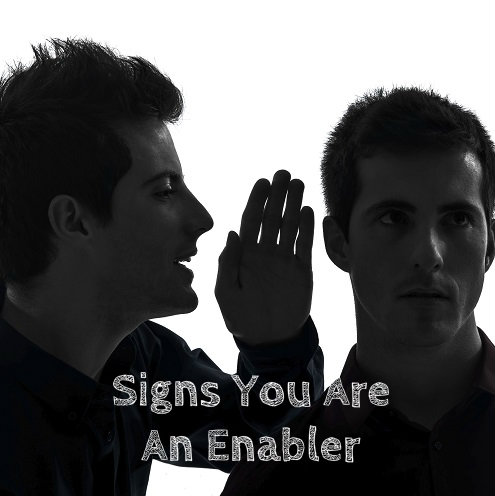 Here are some surefire signs that you are an enabler:
Here are some surefire signs that you are an enabler:
- You make excuses or lie – You cover up or gloss over bad things that your loved one is doing and make excuses to other people. For instance, you might explain away his embarrassing bender at a party by telling everyone that he was sick and the alcohol interacted badly with his cold medicine.
- You take on his responsibilities – For an addict, everyday responsibilities are usually the first thing to go south. If you pick up the slack by picking up the kids from school, doing his chores, taking care of his aging mother or anything else he is supposed to do, you are not letting him feel the consequences of his neglect.
- You put the blame for his problems on anyone but him – Addicts are great at assigning blame to third parties. It’s part of denial. You may add to the problem by encouraging this or telling him that he’s right. You may even blame yourself. The truth is that he makes his own decisions and he needs to realize that.
- You take care of him financially – Addiction costs money. Do you give him more money when he runs out? Do you pay the bills or legal fees? Helping him financially may seem unconnected to his addiction, but it isn’t.
- You avoid addressing the problem out of fear – If you are afraid to face the problem of your loved one’s addiction because you are afraid of a fight or that he will leave you, you are enabling.
How To Stop Enabling And Start Helping
If you recognize the enabler in your habits, it’s time to stop. Start with a conversation about the problem. Stop ignoring it. Tell your loved ones that things will change from now on. You will no longer take care of his responsibilities. You will no longer give him money. What you will do is support and love him. Offer to be there as he gets help or goes to rehab. Tell him and show him that you are there to help and support, but that he needs to get help. Once he starts to really feel the consequences of his addiction he will start to realize the extent of his problem.
Find Out If Are You The ‘Chief Enabler’ For An Addict – And What To Do About It
01 Oct 2014
Are You Codependent?
Codependency is a term that derived several decades ago from the term co-alcoholism. It was coined to describe the role of the spouse of an alcoholic. Today that term has evolved to head a number of symptoms of dysfunctional relationships, both those with an addict and without. A codependent relationship can exist without any type of addiction. But, if you are the partner or spouse of an addict your odds of being codependent are greater. What does this mean? And how do you know if you are codependent?
Having An Addicted Partner And Codependency
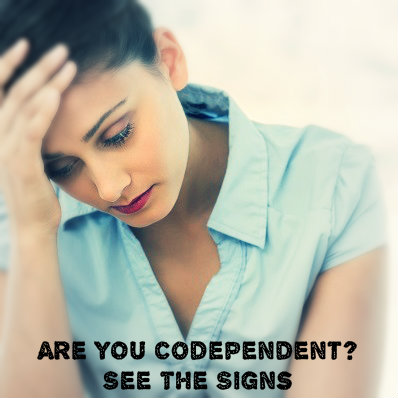 If you do have a partner addicted to drugs or alcohol, or even with a behavioral addiction, you should learn more about codependency and what it means. Your partner definitely needs treatment for addiction, but you may benefit from therapy as well. Being the partner of an addict takes its toll. A simple definition would state that being codependent means drawing your self-esteem and self-worth from your partner.
If you do have a partner addicted to drugs or alcohol, or even with a behavioral addiction, you should learn more about codependency and what it means. Your partner definitely needs treatment for addiction, but you may benefit from therapy as well. Being the partner of an addict takes its toll. A simple definition would state that being codependent means drawing your self-esteem and self-worth from your partner.
This type of dynamic often exists between an addict and their partner because of the balance they strike together. Addicts need someone to enable their habit, make excuses for them and care for them. Codependents need someone to care for and someone to need them. Together the two fit perfectly, if not healthfully.
Signs You Might Be Codependent
Are you codependent? Here are some signs that might indicate you are:
- You Have Low Self-Esteem – Codependents often have a poor sense of self-worth. They feel unworthy of love. They compare themselves to others and come up feeling inadequate. You may be good at hiding this, even from yourself, so dig deep and think about how you really feel.
- You Love To Please Others – If you are codependent, you take much of your self-worth from caring for someone else. As a result, you may be afraid to upset anyone. You can’t say no and you go out of your way to make sure others are happy, often at the expense of your own needs.
- You Ignore Warnings Signs – Problems that your partner has, like his addiction, are crystal clear to others, but you ignore them. You make excuses for his drug or alcohol use and his inappropriate behaviors. You stay in the relationship despite the fact that he is not meeting your needs.
- You Have Poor Boundaries – Codependents have a hard time setting or staying within relationship boundaries. You may have either weak or rigid boundaries. Maybe you share too much personal information or give too much of yourself. On the other hand, you may be withdrawn and unwilling to let anyone see what you’re feeling.
- You Need Control – You like to be in control because it makes you feel safe. This comes out in the form of controlling your partner, or trying to. Controlling can look like caring. Your need to please others or to care for your partner can be a form of control.
- You’re Afraid Of Being Alone – You see the issues in your relationship, but you ignore or deny them because you fear ending it. Being alone scares you because you take your sense of self-worth from your partner. You may be miserable, but you’re going to stay.
Treatment For Codependency
Codependency is not uncommon. If you see these signs in yourself and your relationship, you are far from alone. Still, this type of relationship is unhealthy, especially when one partner is an addict. Treatment can reverse codependency and help you learn to love yourself without needing someone else. Treatment can also help your partner overcome addiction. The important first step is to recognize the problem. Then you can both get help.
If You’re In A Relationship With An Addict Should You Stay Or Leave? Read More Now!
24 Sep 2014
How To Come Out As A Recovering Alcoholic
Being an alcoholic means living with a lifelong disease. If you have gone through rehab or any other form of treatment and are now in recovery you have taken huge steps to get back control of your life and to treat your disease. Remember that addiction is chronic and that you need to treat it for the rest of your life. This means that it will always be a health concern for you. No matter how long you have been sober, a relapse is always possible.
With something so big going on in your life, it doesn’t make sense to keep it a secret from your friends and family members. So how do you come out and tell people? It will be scary at first, but know that your loved ones will support you.
Steps To Come Out And Tell People You’re A Recovering Alcoholic
Start slowly and take this advice:
 Start With A Support Group – The people who will be most sympathetic to your alcoholism are those who also struggle with the disease of addiction. Joining a support group is a great tool for maintaining your sobriety and a useful way to practice talking about your addiction and recovery. The members of your support group will be supportive. No one there will reject you or ridicule you. Tell your story here and you will start to feel more comfortable opening up to others.
Start With A Support Group – The people who will be most sympathetic to your alcoholism are those who also struggle with the disease of addiction. Joining a support group is a great tool for maintaining your sobriety and a useful way to practice talking about your addiction and recovery. The members of your support group will be supportive. No one there will reject you or ridicule you. Tell your story here and you will start to feel more comfortable opening up to others.
- Tell Your Sober Loved Ones Next – The sad fact is that the friends with whom you used to drink may not support your new sobriety. They may take your admission of alcoholism as an accusation that they too have a problem. This comes from a defensive standpoint and denial on their parts, but for you it can feel hurtful and devastating. You can confront these friends eventually, but start with your sober loved ones. They are more likely to be loving and supportive of the changes you’ve made in your life.
- Arm Yourself With Information – When you talk to your loved ones about being in recovery, be prepared to educate them about the disease of alcoholism. Most people still have no idea what addiction really is, that it is an illness. Talk to them about your personal experiences and why you felt you had to stop drinking, but also about alcoholism in general. Help them to understand the disease and they will be better able to support you.
- Tell Your Friends And Family What You Need – It is also important that you provide your loved ones with details about what you need from them. It may be confusing for them. If you need them not to drink around you, make that clear. If you can’t meet up in a bar, make sure they know that. They will want to help, but will need to know how.
- Be Patient And Give Your Loved Ones Space – In spite of your best efforts, some of your loved ones may not take the news well. Be prepared to give them space if needed. The bad reaction will probably be due to shock. Provide them with resources about alcoholism and give them time and space. They will come back to you when they’re ready.
Telling people that you are an alcoholic in recovery is never easy. It is important, though, because your disease is a part of who you are. When you take the time to educate the ones you love and tell them what you need for support, you may be surprised at just how much support you receive.
If You Need Help With Your Addiction Recovery – Call Us Now – We Are Here Just For You!
23 Sep 2014
How To Cope When Your Child Is An Addict
Having an addict in the family is never easy. When that addict is your child, whether a teen, young adult or fully-grown adult, the impact on you as the parent is devastating. First you feel immense guilt and pain because your child is suffering. You may also face a lack of support from your loved ones. Finally, your mental, emotional and physical health may begin to deteriorate. How do you cope with these issues after you have tried to get help for your child?
Living With Pain And Guilt When Your Child Is Addicted
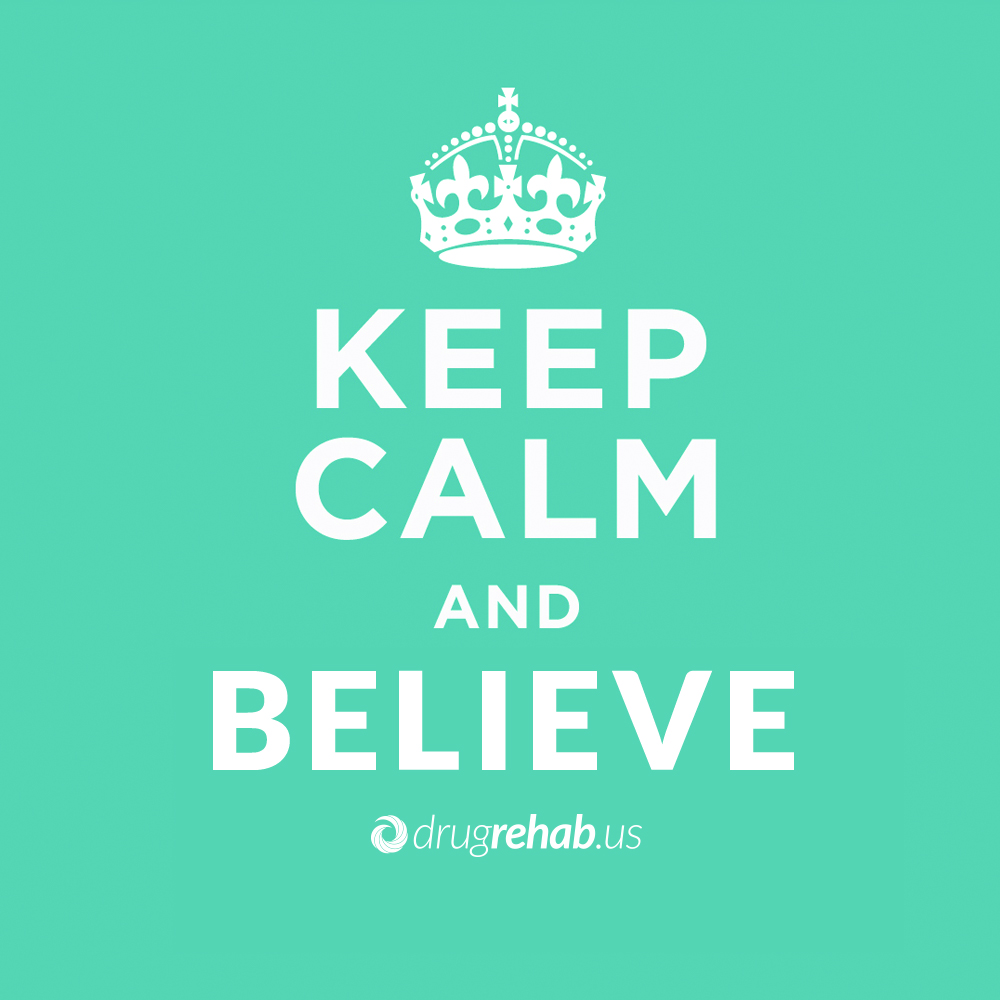 It is only natural to experience a sense of extreme guilt and feeling as if you have failed your child in some way. Seeing your child suffer can also cause you a tremendous amount of anguish and emotional pain. If you have done your utmost to help your child get into recovery, if you have expended your resources, you have done what you can. Remember that your child is capable of making decisions and his poor choices are not your fault. It is normal to still feel guilt and pain, but there are ways to cope.
It is only natural to experience a sense of extreme guilt and feeling as if you have failed your child in some way. Seeing your child suffer can also cause you a tremendous amount of anguish and emotional pain. If you have done your utmost to help your child get into recovery, if you have expended your resources, you have done what you can. Remember that your child is capable of making decisions and his poor choices are not your fault. It is normal to still feel guilt and pain, but there are ways to cope.
Realize that extreme feelings of guilt and pain are signs of a negative attachment to your child. Recognize this attachment and how it is harming you. Accept that your child makes his own choices and that you cannot force him to stop using drugs or alcohol. Focus your energy on yourself and on the positive relationships in your life. If your spousal relationship has been damaged because of your child’s addiction, work on it. Redirecting your focus will help you detach from negative and unhelpful emotions.
Getting Support For Family Addiction
A major issue that parents of addicts face is a lack of support. If your child had another kind of medical disease, like cancer, you could expect to receive all kinds of support from family and friends. Parents of addicts, however, often find their loved ones have turned away, thanks to the lingering stigma attached to the disease of addiction. Support is essential to coping, so find it where you can. Look for other parents who know what you’re going through. Support groups for loved ones of addicts can be a great resource. You might also work on those closest to you. Talk to your more supportive loved ones and explain that you need help and love.
Taking Care Of Yourself When Your Going Through The Pain Of Your Child Being An Addict
You can only help others if you are properly cared for and are well. Trying to help your child and suffering from the guilt and other negative emotions his issues have created, your own self-interests have probably fallen to the bottom of your list of things to do. You must find the time to take care of yourself if you hope to be happy again, to be able to help your child when he is finally ready for it or to re-establish a healthy relationship with your spouse. It may seem selfish, but find time to do something you enjoy, something just for you. Make the time to prepare healthy foods for yourself and include exercise or meditation in your day. These small gestures will make you better able to cope with your addicted child.
Having a child who is seriously ill is one of every parent’s worst nightmares. With the disease of addiction the feelings of helplessness and guilt can be especially powerful. If you can dissociate yourself from those negative feelings, find support and take care of your own health, you can cope with this. You will even be able to help your child when he decides it’s time to get clean.
Read More: What Can You Do When You Feel Helpless With Your Child’s Addiction? And Help Your Child Overcome Their Addiction!
If You Need Help With Your Child’s Addiction – Call Us Now – We Are Here For YOU
Overdose deaths caused by heroin and other opioid drugs are on the rise across the U.S. Opioids include illegal heroin, but also many powerful and addictive prescription painkillers. All of these drugs are easy to abuse, get addicted to and overdose and die from using. An injection with a drug called Naloxone can reverse such an overdose and prevent a tragic death. If you have someone in your life addicted to or abusing opioids, you need to know about this life-saving overdose antidote.
When Naloxone Can Be Used
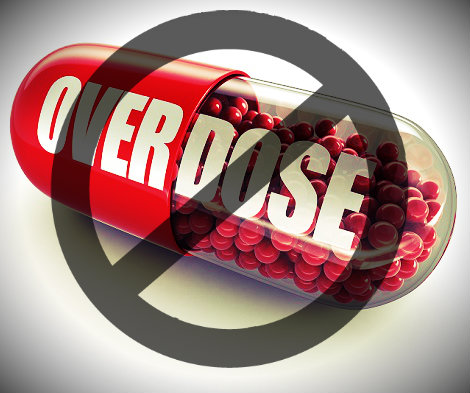 Naloxone is a drug that is related to opioids and that is capable of reversing the effects of certain opioids on the body. It can be used after surgery to reverse the effects of opioids given for pain and sedation. It can be given to infants born with a dependency on opioids. A mother’s drug use causes this and the Naloxone helps to relieve the infant’s withdrawal symptoms. For someone overdosing on an opioid, Naloxone can be injected with a needle or with an auto-injector, called Evzio. The auto-injector is similar to devices used for severe allergic reactions and can be used by anyone without medical training.
Naloxone is a drug that is related to opioids and that is capable of reversing the effects of certain opioids on the body. It can be used after surgery to reverse the effects of opioids given for pain and sedation. It can be given to infants born with a dependency on opioids. A mother’s drug use causes this and the Naloxone helps to relieve the infant’s withdrawal symptoms. For someone overdosing on an opioid, Naloxone can be injected with a needle or with an auto-injector, called Evzio. The auto-injector is similar to devices used for severe allergic reactions and can be used by anyone without medical training.
Naloxone Saves Lives
Naloxone has been successful in saving lives. The Centers for Disease Control and Prevention (CDC) reports that thousands of doses of Naloxone have been distributed in community groups dedicated to preventing overdose deaths. Because of this distribution, more than 10,000 people have been saved from life-threatening overdoses. Community groups, first responders and law enforcement officers are being given injectors in greater numbers to administer life-saving Naloxone.
Can Anyone Get Naloxone?
The important question for anyone who cares about an opioid drug abuser is about access to the overdose antidote. Emergency responders and police have them, and injection devices are easy to use. Can anyone get access to a Naloxone injector? Should you carry one with you to save your loved one’s life in the event of an unintentional overdose? Many advocates for greater access to the overdose antidote say yes.
Community programs are already working toward getting more Naloxone injectors into the hands of those who need it. It is a prescription medication, but it can be prescribed to anyone who is at risk of having an overdose. The reach of such community programs, however, is currently limited. These programs are run mostly through needle exchange programs and target inner-city heroin addicts. More access is needed in greater areas and for people abusing prescription painkillers, not just heroin. Support for expanding access is high, but funds are low.
To get a Naloxone injector for yourself or a loved one, you need to either find a community program near you that will distribute it to those in need, or find a physician willing to write you a prescription for one. If you don’t know where to start, speak to your primary care doctor for more information or referrals. Also keep an eye out for non-prescription Naloxone. Because of the great need for this life-saving drug, the Food and Drug Administration (FDA) is considering the development of an over-the-counter alternative.
Opioid addiction is a terrible disease. It can hook anyone and it can do so quickly. Getting over an addiction to an opioid is extremely challenging. Anyone abusing these drugs is at risk for an overdose. Dying from an overdose can even occur with the first use of one of these drugs. If you know someone who abuses any kind of opioid, the overdose antidote should be on your radar. Look into the possibility of getting access to the injector. It could save the life of someone you love.


